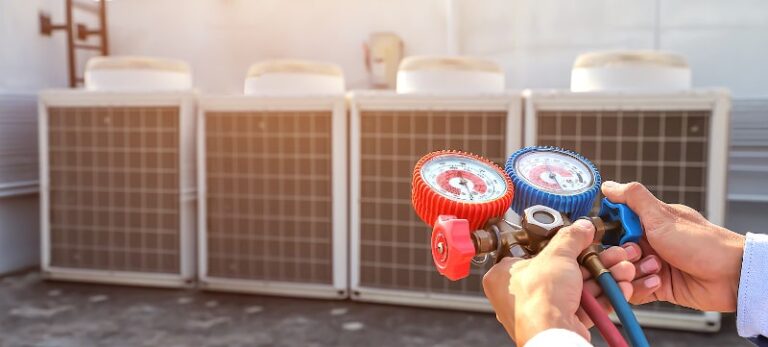As winter comes to an end here in Auburn, AL, we hope that your HVAC system served you well throughout the cold season. Spring is the best time to take care of your commercial HVAC system by scheduling annual maintenance as you prepare for the summer heat. Below are some of the reasons why spring is the right time for commercial HVAC maintenance.
Check Your Air Filters
We recommend changing your air filters once every quarter – more frequently, if needed. Now is the right time to change the dirty filters and prevent a lapse of airflow. If ignored, the dirt can build up in your ductwork and reduce efficiency or even pose a health risk to your employees.
Dust and debris also encourage wear and tear of components, which results in unnecessary replacement costs. Before the heat arrives, it’s a good idea to get your system inspected and cleaned by a reliable HVAC contractor.
Check Your Ducts
Ducts can develop cracks and lose connectivity from the harsh winter weather. You need them checked and repaired where necessary during this transition period for optimal operations in summer. Damaged ducts lead to loss of conditioned air, which reduces comfort levels and increased energy waste.
A professional technician can detect holes and weak joints and seal them, which will enhance the system’s efficiency and minimize bills. Call your technician during this period and prevent an emergency call in the summer heat.
Inspect Your HVAC Equipment
It’s advisable to inspect equipment such as the air handlers and condensers to ensure they’re in good shape. Check for standing water in the drain pans or any debris that might have entered your unit.
Additionally, damaged equipment may lead to severe damage to the whole system or a complete breakdown. Contact your HVAC system specialist and prevent the potential for premature system replacement.
Test Your AC Unit
With winter winding down, now is the right time to test your AC system before it switches entirely into cooling mode. It’s easy to forget about your air conditioner equipment during winter since you aren’t using it. However, before you go into cooling mode, spring maintenance will test whether the unit is ready for summer temperatures.
Start by changing the settings to cooling and noticing any smells or strange noises. If you catch these alarming problems, immediately call your technician for a thorough inspection.
Refrigerant Levels Need Checking
Your heat pump requires the right amount of refrigerant to cool your facility during summer. A technician can check the refrigerant levels in your system and add the required amount if necessary. The technician can also check for leaks and repair them before the system is up for use.
Inspect Electrical Connections
Spring is also the time to check for any electrical connection faults and tighten them for continued operations. When your HVAC system is operating, it produces vibrations, which may lead to loose connections. If these loose electrical connections aren’t caught during this period, they can cause breakdowns when you need the system most.
Now that you’re about to switch to cooling mode, take advantage of this period and contact a professional to maintain performance. You can avoid the emergency call by scheduling maintenance now.
Why Spring Tune-Ups?
During this period, many HVAC contractors are less busy and can give your system its needed attention. We recommend complete professional maintenance of your system twice every year. The best time for these maintenance exercises is spring for the cooling system and fall for the heating system.
The reason behind this is to get the system in perfect condition for peak use months. It’s also advisable to detect and handle issues before they turn into serious problems when you need the system most. It also assures you that your system will keep your employees safe and comfortable no matter how extreme the weather gets.
When you need spring commercial HVAC maintenance, contact the team at Sensigreen. Our HVAC professionals will help with all matters concerning HVAC and ensure you get the best out of your system.
Image provided by iStock


